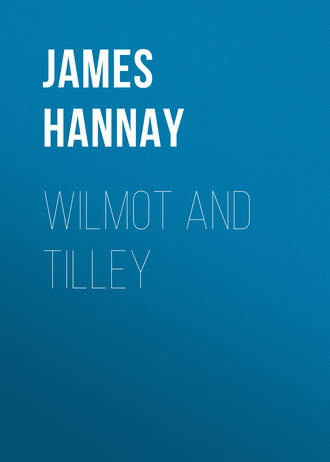 полная версия
полная версияWilmot and Tilley
1
This is shown by the correspondence of Sir John Harvey with the colonial office. Sir John was then governor of Prince Edward Island.
2
Charles II annulled the charter of Massachusetts, and disposed in a similar fashion of the charter of the city of London, as well as of many English towns.
3
This change had been effected by a royal commission under the signet and sign-manual dated December 3d, 1832. There is nothing in the records of the province to show why this was done. Neither the council nor the House of Assembly had asked for it. The Nova Scotia council was not divided until 1838.
4
Mr. Wilmot's resolution was carried in the assembly without a division, so that he had the solid support of the popular branch of the legislature, yet little good was to be expected from such votes in the House.
5
The resolution to present this address was strongly opposed by Mr. Wilmot and his colleague, Mr. Fisher, who both declared the conduct of Lord Metcalfe to be contrary to the principles of responsible government. Mr. Wilmot's speech led to a singular result. He was attacked in the Loyalist newspaper for his opposition to the address, and this attack having been brought to the notice of the House of Assembly was voted a breach of privilege. Messrs. Doak and Hill, the proprietors of the paper, were arrested on the warrant of the speaker and committed to prison. On the application of their counsel, Mr. D. S. Kerr, they were released by Mr. Justice Carter on a writ of habeas corpus. Doak and Hill both brought actions against the speaker, Mr. Weldon, and the result was a decision of the Supreme Court of New Brunswick that the House of Assembly had not the power to arrest and imprison the publisher of a libel on a member of the House touching his conduct and proceedings in the House.
6
This occurred during the time of the "rump" government composed of Messrs. Simonds, Allen and McLeod, the members of the executive who refused to resign at the time of the Reade appointment.
7
The following resolutions which were moved by Mr. Partelow were carried in the House of Assembly by a vote of twenty to two:
"1st. Resolved, That this committee deeply regret that His Excellency the lieutenant-governor in council should not have felt himself authorized to communicate to the House the despatch of the Right Honourable the Secretary of State for the Colonies, of January 5th, 1845, relative to the appropriation of the surplus civil list, in answer to the address of the House of Assembly of March 14th, 1845, whereby the House was prevented from representing, by an humble and dutiful address to Her Majesty, that such appropriation was not in accordance with the despatch of the Right Honourable the Secretary of State for the Colonies of August 31st, 1836.
"2d. Resolved, As the opinion of this committee, that any funds necessary to carry out the fourth article of the Treaty of Washington, being a national treaty with a foreign power, ought not to be chargeable upon the funds of this province; and that the House should, by an humble and dutiful address to Her Majesty, pray that any appropriation made for that purpose from the surplus civil list fund may be refunded to the same."
8
This is an adaptation of General Taylor's words. John A. Poor was the chief promoter of the European and North American Railway and the chairman of the committee of arrangements of the Portland Convention.
9
The Aroostook War arose out of the unsettled boundary question between Maine and New Brunswick. There was a large area on the St. John River, the ownership of which was in dispute, and in 1839 the difficulty came to a head in consequence of the governor of Maine undertaking to solve the question in his own way by taking possession of the territory. Governor Fairfield, of Maine, sent eighteen hundred militiamen to the front and Sir John Harvey, the governor of New Brunswick, issued a proclamation asserting the right of Great Britain to guard the territory while it was in dispute, and calling on the governor of Maine to withdraw his troops. Fairfield denied the right to issue a counter proclamation and called on the state for ten thousand men. Sir John Harvey then sent Colonel Maxwell with the 36th and 69th Regiments and a train of artillery to the upper St. John to watch the movements of the militia. A large force of New Brunswick militia was also embodied and sent to the front. Fortunately, President Van Buren sent General Winfield Scott to Maine with full power to settle the difficulty. He got into a friendly correspondence with Sir John Harvey, which led to an understanding by which the troops on both sides were withdrawn and all danger of war averted. The boundary question was afterwards settled by the Ashburton Treaty.
10
For a full account of Howe's views on confederation see the Hon. J. W. Longley's Joseph Howe in this series.

